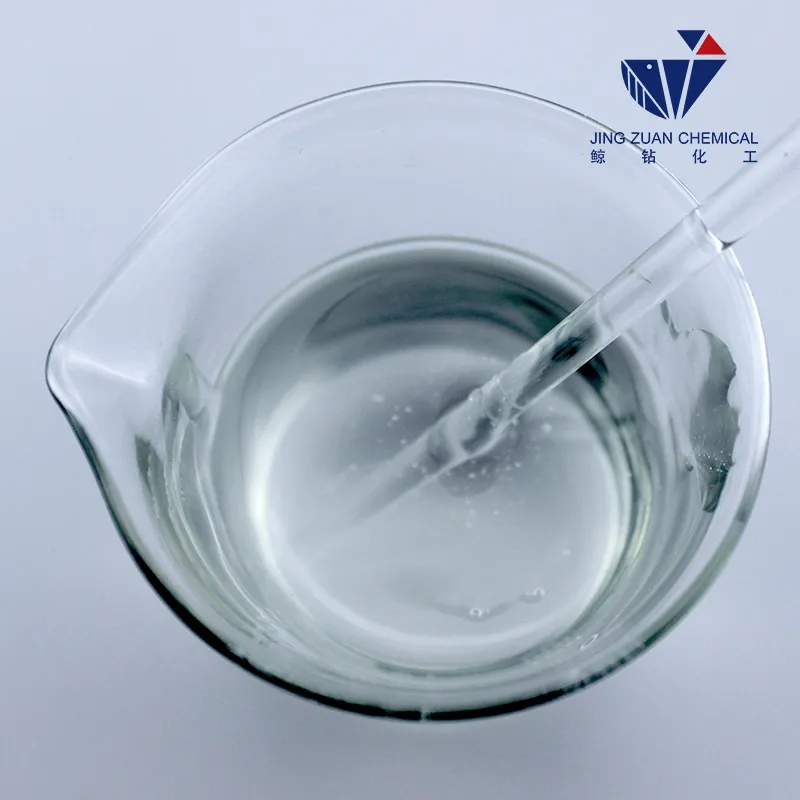
अगस्त . 10, 2024 01:05 Back to list
Preparation Techniques for HPMC Solutions in Pharmaceutical Applications and Their Impact on Formulation Stability
Preparation of HPMC Solution
Hydroxypropyl Methylcellulose (HPMC) is a versatile cellulose derivative widely used in pharmaceutical, food, cosmetic, and construction industries due to its properties such as thickening, emulsifying, and film-forming abilities. Its solubility in water and biodegradability makes it suitable for various applications, including drug delivery systems and as a food additive. This article outlines the essential steps for the preparation of HPMC solutions, focusing on the factors that influence solubility and the final properties of the solution.
Selecting the Right HPMC Grade
The first step in preparing an HPMC solution is selecting the appropriate grade of HPMC. Different grades vary in their viscosity, degree of substitution, and solubility in water, which directly impact the properties of the prepared solution. HPMC comes in various forms, including HPMC K (high viscosity), HPMC E (medium viscosity), and HPMC M (low viscosity). The choice of grade will depend on the intended application, as different viscosities provide distinct functional characteristics.
Preparation Process
1. Gathering Materials Begin with high-purity HPMC powder, distilled water, measuring equipment, and stirring apparatus. It is essential to use distilled water to avoid contamination and ensure the accuracy of the concentration.
2. Calculating Concentration Determine the desired concentration of the HPMC solution. Common concentrations range from 1% to 4% (w/v), depending on the viscosity required for the application. For pharmaceutical applications, a lower concentration may suffice, while food or construction applications may require higher concentrations.
3. Dispersion Gradually sprinkle the HPMC powder into the distilled water while stirring continuously. This step is crucial to prevent clumping and ensure an even dispersion. Utilizing a mechanical stirrer can aid in achieving a smooth dispersion. It is recommended to add the powder slowly to the water rather than the other way around to minimize agglomeration.
hpmc solution preparation

4. Hydration Allow the mixture to hydrate for a specific period, usually between 30 minutes to several hours, depending on the concentration and the specific properties of the HPMC. During this time, the HPMC particles absorb water and swell, ultimately dissolving to form a viscous solution.
5. Heating (Optional) In some cases, gentle heating may facilitate better dissolution, particularly for higher concentrations. However, it is important to avoid temperatures above 60°C, as excessive heat can degrade HPMC and negatively influence its properties.
6. Stirring and Final Adjustment After hydration, stir the solution thoroughly to ensure homogeneity. If the solution is too viscous, additional water can be added to achieve the desired consistency. Adjust the pH if necessary, as certain applications may require a specific pH range.
Quality Control
It is crucial to conduct quality control tests to ensure that the prepared HPMC solution meets the desired specifications. These tests may include measuring viscosity, pH, and clarity, which help in determining the suitability of the solution for intended applications.
Conclusion
The preparation of HPMC solutions requires careful selection of materials, precise measurement, and adherence to procedural guidelines to achieve optimal results. By understanding the characteristics of HPMC and the factors that influence its solubility and viscosity, one can tailor the solution to meet specific application requirements. Whether utilized in pharmaceuticals, food products, or industrial applications, a well-prepared HPMC solution serves as a fundamental component in creating high-quality products.
-
Versatile Hpmc Uses in Different Industries
NewsJun.19,2025
-
Redispersible Powder's Role in Enhancing Durability of Construction Products
NewsJun.19,2025
-
Hydroxyethyl Cellulose Applications Driving Green Industrial Processes
NewsJun.19,2025
-
Exploring Different Redispersible Polymer Powder
NewsJun.19,2025
-
Choosing the Right Mortar Bonding Agent
NewsJun.19,2025
-
Applications and Significance of China Hpmc in Modern Industries
NewsJun.19,2025







